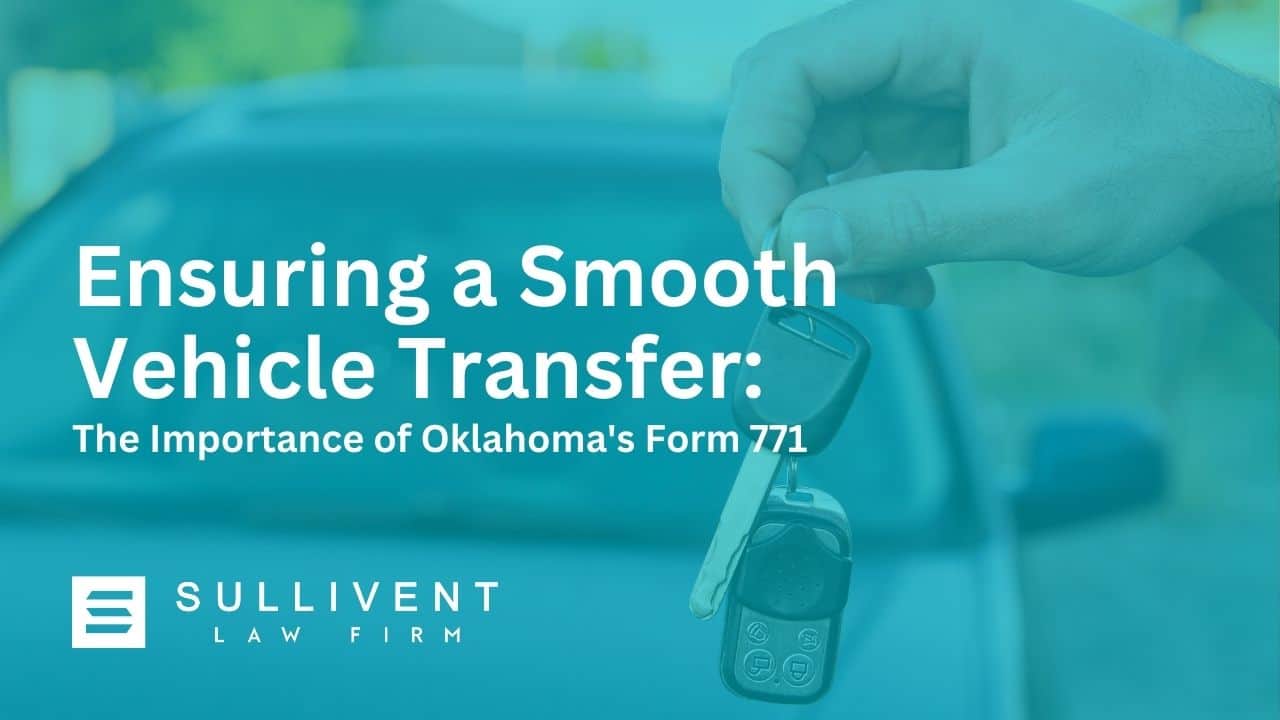Table of Contents
Ensuring a Smooth Vehicle Transfer: The Importance of Oklahoma’s Form 771
When it comes to estate planning, vehicles are often overlooked. However, failure to properly plan for the transfer of your vehicles can lead to unintended complications for your loved ones. If you have vehicles titled in your individual name at your death and the total combined value of your estate exceeds $50,000, probate may be required to transfer ownership of each vehicle. To avoid this, Oklahoma offers a simple yet effective solution: Form 771.
Understanding Form 771: Transfer on Death for Vehicles
Oklahoma’s Form 771 allows vehicle owners to name a Transfer on Death (TOD) beneficiary, ensuring a seamless transition of ownership upon their passing. This innovative approach was established through Senate Bill 1511, introduced in the 2016 legislative session by Anthony Sykes of Newcastle and Gary Stanislawski of Tulsa in the Senate, and Mark McCullough of Creek County in the House. The bill was signed into law by Governor Mary Fallin on April 19, 2016, and became effective on November 1, 2016, codified at 47 O.S. §1107.5.
Originally, the law required that a notice of transfer be filed with the Oklahoma Tax Commission using Form 771. However, with the creation of Service Oklahoma under House Bill 3419, signed by Governor Kevin Stitt on May 19, 2022, vehicle registrations and renewals are now administered by this new agency. The statute was amended effective May 19, 2023, to require that the notice of transfer be filed with Service Oklahoma instead of the Tax Commission. Form 771 remains available, now bearing Service Oklahoma letterhead, with no other changes to the law.
Why Form 771 Matters for Your Estate Plan
For individuals engaged in estate planning, Form 771 is a powerful tool to prevent unnecessary legal hurdles. By designating a beneficiary for your vehicles, you ensure a straightforward transfer process without the need for probate. Whether you choose to name a trusted individual or transfer the vehicle to your trust, this simple step can save your loved ones time, expense, and stress. Additionally, Form 771 is free to file and far less cumbersome than re-titling your vehicle in the name of your trust, making it a convenient and cost-effective estate planning tool.
We’re Here To Help
At Sullivent Law Firm, we create estate planning solutions tailored to your unique needs. If you want to learn more about how Form 771 and other estate planning tools can protect your assets and your family’s future, contact us today. Let us help you build a plan that provides peace of mind and security for your loved ones.



